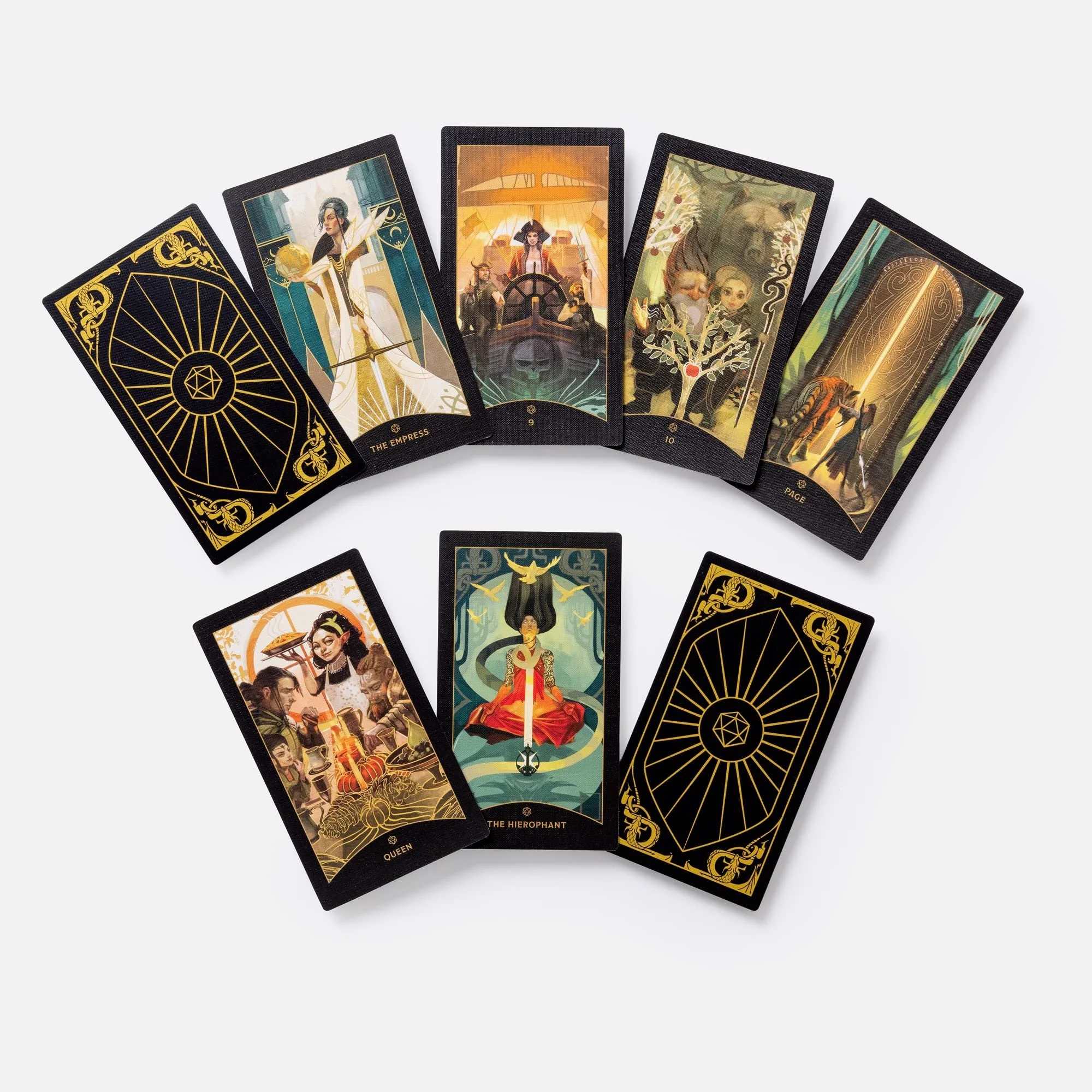The Blog
Looking for episode show notes? Free downloads are all here.

The Dungeons & Dragons Tarot Deck: Our Review
This summer saw the release of the officially licensed Dungeons & Dragons tarot deck, illustrated by Fred Gissubel. The deck is certainly beautiful, but is it worth the buy?

Stat Tracking Fishbones for Player Characters and NPCs
In this bonus audio and blog post, Nurse Keith walks you through the free fishbone diagrams he created to track PC and NPC stats. Try these out in your next session and let us know what you think!

User Journeys: Keeping Player wants in focus when session planning
How do you allow for freedom without chaos? How do you organically direct players toward the content you've prepared without it feeling forced?
One answer is to create a user journey for your party focused on what your players want!

What is Information Architecture, and why does it matter to dungeon masters?
Whether you are intentional about it or not, you present information to your players every session in the form of maps, NPCs, backstories, monsters, environmental hazards, secrets, rumors, and even the menu at the local tavern. All of this information is competing for your players' attention, and you want to make sure that the information they are interested in is easy to find and use.

Learning from the “Lazy” Part 1
As a player, you get to show up for a game and jump right in, yay! Not so for us poor Dungeon Masters, who spend hours upon hours preparing for a session, only to realize half of our content will never see the light of day. There must be a better way!

Inversion: Spur Creativity by opposite thinking
German mathematician Carl Jacobi explained that to better understand a principe, you should invert it.
If you have a seed of an idea, even just a combat encounter, but are feeling stuck, you may discover some fantastic ideas by turning your existing thoughts inside out.
Take a quest idea, NPC issue, or combat encounter and look at it backwards, or invert it, and see where it leads.

Organizing Information: the LATCH System
Are there really only five ways to organize information? How can dungeon masters use Richard Saul Wurman’s five methods of organization in the LATCH system? By considering alternative ways to sort and deliver information, you can find inspiration and a fresh way of structuring your world, running combat, role playing, and more.
